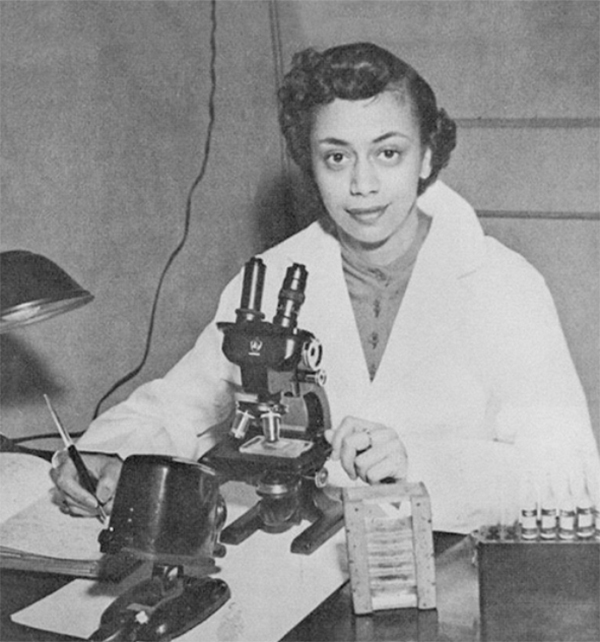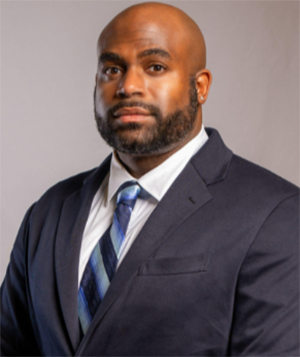Mission Statement

Through its establishment in 2023, the Dr. Jewel Plummer Cobb Honors Program at Talladega College aims to create a space for students with high academic potential and record increased opportunities to increase the academic rigor of their experience and extend the intellectual horizons in our curriculum.
Our mission includes the following:
- Providing students with an intellectually rigorous course of study;
- Engaging scholars in independent research and experiential learning to aid in their preparation for graduate school and careers.
- Helping students connect their lived experiences to the broader global community.
- Ensuring scholars engage in co-curricular and extracurricular endeavors to enrich themselves and Talladega’s campus and community.
Within these activities, our program encourages academically advanced scholars to fully adopt the University’s core values: Students First, Accountability, Integrity, Diversity, And Excellence.
Special Advantages
Not only do students in the Honors Program have access to engaging coursework, relevant experience, and interdisciplinary electives but they also receive other benefits such as:
- Smaller class sizes in core courses
- Priority class registration
- Priority in housing lottery/honors housing assignments
- Variety of scholarly, cultural, and social activities
- Practice and encouragement in thinking and working across various academic disciplines
- Use of the Honors Program lounge
- Opportunities to receive first-rate recommendations to graduate and professional schools
- Opportunity to attend and present at Honors conferences
- Graduation with Honors designated on the transcript
- Honors Program seniors listed on the graduation program
- Honors cord to be worn with graduation regalia
Faculty/Staff
 Dr. Christopher Sewell
Dr. Christopher Sewell is the Dean of the Dr. Jewel Plummer Cobb Honors Program and Associate Professor of Education and Humanities at Talladega College. Previously, he was Associate Dean of Students and Dean of First-Year Students at Williams College and Curriculum Manager at Praxis Labs. He has worked across the educational spectrum. His scholarship focuses on the experiences of gifted students of color with college access, the transition to college, and the experiences of Black students at Predominantly White Institutions.
Dr. Sewell serves on the Editorial Board for the Journal of African American Males in Education (JAAME) and the Journal of Queer and Trans Studies in Education. He has previously served as the Multicultural/Multiethnic Education SIG Program Chair. He earned his Doctor of Education degree in Educational Leadership and Policy from Vanderbilt University, Master of Science in Education from the University of Pennsykvania, Master of Arts in Afro-American Studies from UCLA, and Bachelor of Arts in American Studies and History from Williams College.
Contact Information:
csewell@talladega.edu
Office: 256-761-8757
 Ms. Rachelle Williams
Ms. Rachelle Williams is an Assistant Professor of Humanities and the Associate Director of the Dr. Jewel Plummer Cobb Honors Program. She also serves as the Senior Class Advisor and the Advisor for Model UN. She earned a BA in History from Talladega College, an MA in Women’s Studies from the University of Maryland, College Park, and an MFA in Narrative Media Writing from the University of Georgia. She has spent much of her career as a college professor in the African American and Women’s Studies departments at the University of Maryland and teaching general arts and humanities courses to adult learners at the University of Phoenix. She has also served as an academic advisor and academic coach for college and K-12 students.
Williams is a former contributing writer for East City Art, an online magazine that covers visual arts events in the metropolitan Washington, DC, area. Her writing has been featured in two editions of the anthology CONFLUENCE: Two Rivers, One City, the DC region’s annual publication of compelling critical writing on art. Williams serves on the Reading List Committee for the national book club Go On Girl! and is a certified instructor of Kathleen Adams’ Journal to the Self through the Center for Journal Therapy in Denver, Colorado. Williams is also a member of Delta Sigma Theta Sorority, Inc.
Contact Information:
rwilliams@talladega.edu
Honors Program Curriculum
The Honors Program curriculum functions within a loose framework of courses intended to bring breadth and interdisciplinarity perspectives to our students’ growth as critical thinkers, questioners, and future professionals. Course offerings will change from semester to semester, but always make essential connections to your location within the global picture and your professional or graduate school plans. Of course, requirements will differ depending upon a student’s entry point—as a first or second-year/transfer student. All Honors Program courses and seminars fulfill the College core curriculum or graduation requirements.
Required Honors Program Curriculum
Entering as a first-year:
- Honors English 101 and 102
- Honors EDU 100
- Honors Humanities 101 and 102
- PE 101-102
- Honors HIS 235 and 236 Honors
- Honors Biology or Natural Science
- Math (based on the level of enrollment)
Entering as sophomores:
INTERDISCIPLINARY ELECTIVES: All students who wish to graduate with Honors will select
three 300-400 level elective courses besides the CORE courses.
Example Electives:
HON 301 Race Education and Popular Culture
This course will explore the educational experience of Black students as portrayed in popular culture and compare that to the K-12 and higher education literature that documents and examines the lived experiences of Black students. How accurately do we see the experience of Black students represented in popular culture? What choices or biases might be reflected in these depictions? What might the consumption of these media have on how people build narratives around the experiences of Black students throughout the American educational system?
Potential topics include the experience of students at historically Black colleges and universities (“A Different World,” “School Daze,” “The Quad”), experiences in gifted and talented education (“Smart Guy,” “Akeelah and the Bee,” “Finding Forrester”), experiences at predominately White institutions (“Higher Learning,” “Grown-ish,” “Dear White People”), experiences as student-athletes (“Love and Basketball,” “Coach Carter”), and experiences in public and public charter schools (“Lean on Mean,” “The Steve Harvey Show”, “Dangerous Minds,” “On My Block,” “Boston Public,” “Waiting for Superman,” “The Lottery”).
HON 302: The Act of Passing: History, Literature, And Film
This course explores narratives of impersonation and racial passing, featuring people who cross social boundaries of race, ethnicity, class, sexuality, or gender, disguising or abandoning their original identity to seek a better life. We explore this history behind passing and then examine narratives of passing through literature and film. We will begin our study in the 1920s through Nella Larsen’s “Passing” and continue to explore other texts like “The Autobiography of an Ex-Colored Man,” “Perfect Peace,” “Caucasia,” and “The Vanishing Half.” We will also examine how passing plays out in films (“Pinky,” “Imitation of Life,” “The Human Stain,” and “A Jazzman’s Blues”).
HON 303: Afro-Caribbean Literature and Film
This course studies African-Caribbean literature, encompassing the West Indian Islands and the experiences of Afro-Caribbeans in their lives in the United States and England. We explore the historical issues that underpin the literature and films examined. We will begin our study with Paulie Marshall's work from the 1950s and begin a journey through the Caribbean, leading to contemporary literature (“Brown Girl,” “Brownstones,” “Breath, Eyes, Memory,” “Krik? Krak!” “Lucy”, “Black Cake,” “The Star Side of Bird Hill,” “Yardie,” “Brother”). We will also spend the latter half of the class critiquing and engaging more specifically with books that have been made to screen to understand their adaptation and the implications of said adaptations (“Black Cake,” “Yardie,” “Brother,” “Small Axe”).
HON 304: On Turning 50: Women in Hip-Hop Culture
In the last five decades, the discourse on Hip-Hop culture has garnered increased attention and interest in the media and, more recently, in the academy. Though Hip-Hop scholars, activists, and artists have recognized the significance of Hip-Hop’s widespread appeal and possibilities, many have begun to critique the omission of women’s contributions and achievements in this dialogue. In this course, we will embark on a woman-centered exploration of Hip-Hop culture, making women visible in spaces where they have often been rendered invisible and giving them a voice where they have often been silenced.
Though rap music is often conflated with Hip-Hop culture and is its most visible and audible expressive element, women’s contributions to Hip-Hop art forms outside of rapping have been given little or almost no attention. This course will introduce students to women’s roles in Hip-Hop culture as break dancers, graffiti artists, DJs, fiction writers, and filmmakers and their participation in Hip-Hop culture as activists, consumers, mothers, wives, and businesswomen.
By the end of this course, students will not only gain knowledge of women’s contributions to Hip-Hop culture but also develop the analytical skills necessary to “bring wreck” and engage in debates and critiques about pertinent issues and concerns relevant to women in Hip-Hop, especially those involving the intersections of race, class, gender, sexuality, and other forms of difference.
Honors Capstone / Thesis
All students who wish to graduate with Honors will prepare an Honors thesis or Capstone equivalent. Students must attend an honors thesis workshop to clarify their specific needs and satisfy the requirements.
Honors Thesis Research: Your research for Honors is departmentally supervised. Advising for your senior research takes place throughout your four years of study. Your selection of a Thesis advisor must be determined by your second semester of Junior Year. Students intending to graduate with Honors Program recognition must complete a thesis approved by their Department and the Honors Program. The Honors Program hosts workshops on thesis preparation each spring semester.
JPC Honors Student Association
More information is coming soon.
Honors Student Achievements
More information is coming soon.

 Dr. Christopher Sewell is the Dean of the Dr. Jewel Plummer Cobb Honors Program and Associate Professor of Education and Humanities at Talladega College. Previously, he was Associate Dean of Students and Dean of First-Year Students at Williams College and Curriculum Manager at Praxis Labs. He has worked across the educational spectrum. His scholarship focuses on the experiences of gifted students of color with college access, the transition to college, and the experiences of Black students at Predominantly White Institutions.
Dr. Christopher Sewell is the Dean of the Dr. Jewel Plummer Cobb Honors Program and Associate Professor of Education and Humanities at Talladega College. Previously, he was Associate Dean of Students and Dean of First-Year Students at Williams College and Curriculum Manager at Praxis Labs. He has worked across the educational spectrum. His scholarship focuses on the experiences of gifted students of color with college access, the transition to college, and the experiences of Black students at Predominantly White Institutions.  Ms. Rachelle Williams is an Assistant Professor of Humanities and the Associate Director of the Dr. Jewel Plummer Cobb Honors Program. She also serves as the Senior Class Advisor and the Advisor for Model UN. She earned a BA in History from Talladega College, an MA in Women’s Studies from the University of Maryland, College Park, and an MFA in Narrative Media Writing from the University of Georgia. She has spent much of her career as a college professor in the African American and Women’s Studies departments at the University of Maryland and teaching general arts and humanities courses to adult learners at the University of Phoenix. She has also served as an academic advisor and academic coach for college and K-12 students.
Ms. Rachelle Williams is an Assistant Professor of Humanities and the Associate Director of the Dr. Jewel Plummer Cobb Honors Program. She also serves as the Senior Class Advisor and the Advisor for Model UN. She earned a BA in History from Talladega College, an MA in Women’s Studies from the University of Maryland, College Park, and an MFA in Narrative Media Writing from the University of Georgia. She has spent much of her career as a college professor in the African American and Women’s Studies departments at the University of Maryland and teaching general arts and humanities courses to adult learners at the University of Phoenix. She has also served as an academic advisor and academic coach for college and K-12 students.